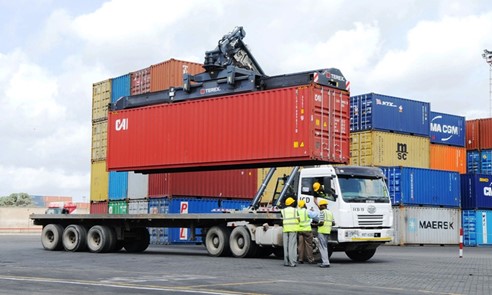
Predicting that the crisis in the Red Sea could be a
prolonged one, with shipping costs going up by 40-60%, and insurance premiums
up by 15-20%, trade policy think tank Global Trade Research Initiative advised
in a report released Saturday that the government must step in with support to
exporters.
The delay through
rerouting of ships has also led to an increase in time taken on seas by up to
20 days, GTRI said.
The Baltic Index that tracks global shipping costs has
soared 85% between December 29, 2023, and January 4. Apart from basic shipping
costs the risk and peak season surcharges have also gone up. Though the total
cost of shipping varies route to route, at some places it has gone up by
five-six times.
The attacks by drones and missiles on merchant vessels
have seen shipping costs and time to deliver a cargo go through the roof,
putting margins of exporters under severe pressure. The real problem is being faced by those whose contracts also include
costs of delivering goods at buyers’ ports.
India’s exports to key markets located on the US east
coast, Europe and eastern ports of Latin America all use the Red Sea route
through Suez Canal.
“Offering financial support and insurance schemes to
Indian companies affected by trade disruptions could be considered,†said
GRTI’s co-founder Ajay Srivastava.“While
India is implementing measures to ensure the safety of its ships in the Red
Sea, the effectiveness may be limited as most Indian cargo is carried by global
shipping firms,†the report said.
India is heavily reliant on the Bab-el-Mandeb Strait,
the main theatre of attacks by Houthis, for crude oil and LNG imports
and trade with key regions. It also faces substantial economic and security
risks from any disruption in this area.Bab-el-Mandeb Strait is between Yemen on
the Arabian Peninsula and Djibouti and Eritrea in the Horn of Africa. It
connects the Red Sea to the Gulf of Aden and by extension the Indian Ocean
through the Suez Canal.
Approximately 65%
of India’s crude oil imports in FY2023, valued at $105 billion, from countries
like Iraq, Saudi Arabia, and others, likely passed through the Suez Canal .“India might look to diversify its sources of crude oil and LNG, and
explore alternative trade routes to reduce dependency on the conflict-prone Red
Sea passage,†the GTRI report said.